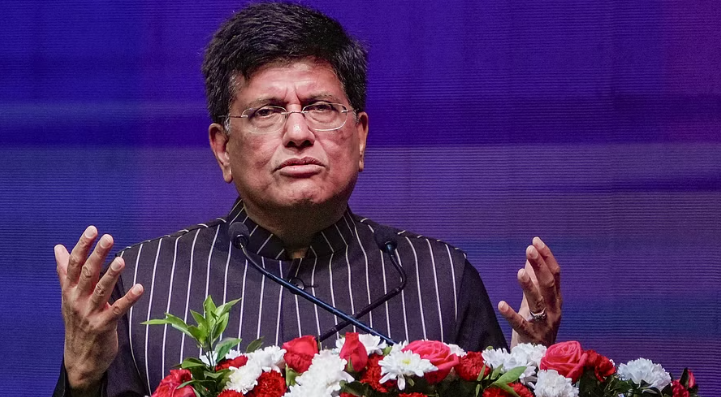India Grants Record Patents (GS Paper 2, Government Policies & Interventions)

Introduction
- India has made significant strides in intellectual property rights, particularly in the realm of patents.
- Recently, the Union Minister of Commerce and Industry announced that India issued around one lakh patents in 2024, marking a substantial increase in patent approvals.
- This milestone highlights India's growing emphasis on innovation and research.
What is a Patent?
About:
- A patent is a legal right granted for an invention, providing the patent holder exclusive rights to use, replicate, or sell the invention without interference from others.
- Patent protection is territorial, meaning it is effective only within the jurisdiction where it is granted.
- The Indian patent system is governed by the Patents Act, 1970, with regular amendments to adapt to changing environments, the latest being the Patents (Amendment) Rules, 2024.
Criteria of Patentability:
- An invention must be novel, non-obvious, and capable of industrial application to be patentable.
- It should not fall under the exclusions of sections 3 and 4 of the Patents Act, 1970.
Patents Act, 1970:
- This principal law came into force in 1972, replacing the Indian Patents and Designs Act of 1911.
- The Act was amended by the Patents (Amendment) Act, 2005, extending product patents to all fields of technology, including food, drugs, chemicals, and microorganisms.
- The amendments also introduced compulsory licensing and provisions for pre-grant and post-grant opposition.
Key Changes Under Patents (Amendment) Rules, 2024
- Reduced Timeline for Filing a Request for Examination (RFE): From 48 months to 31 months from the priority date.
- Introduction of ‘Certificate of Inventorship’: Recognizes inventors' contributions by identifying them for their patented inventions.
- Frequency of Filing Statements: Reduced from once a financial year to once every three financial years.
- Amendments in Pre-Grant and Post-Grant Opposition Procedures: Adjusted time frames for submission of recommendations by an Opposition Board and the response time for applicants.
Global Innovation Index (GII) 2023
- In the GII 2023 rankings by the World Intellectual Property Organization (WIPO), India secured the 40th position out of 132 countries, an improvement from the 46th position in 2021 and the 81st rank in 2015.
- Additionally, a WIPO study indicated a 31.6% rise in patent applications in India in 2022, surpassing growth rates in China and the UK.
Significance of Granting Patents
- Encouraging Innovation and Research: Patents provide exclusive rights, incentivizing inventors to innovate.
- Attracting Foreign Direct Investment (FDI): Strong intellectual property protection attracts more FDI, offering confidence to foreign investors that their innovations will be safeguarded.
- Creating a Knowledge-Based Economy: Protecting intellectual assets in literature, arts, music, and branding fosters a knowledge-based economy.
Challenges in the Patenting System
- Lengthy Approval Process: Patent examinations can take months or years, delaying the securing of rights.
- Backlog of Patent Applications: High volumes of applications lead to backlogs, extending approval times.
- Limited Awareness and Education: Many inventors lack knowledge about the patenting process, hindering effective protection of inventions.
- Resource Constraints: The patenting process can be expensive, posing a barrier for inventors with limited resources.
- Stringent Patentability Criteria: Exclusions under Section 3 of the Patents Act can hinder innovation in certain areas.
- Enforcement Issues: Enforcing patent rights against infringers can be costly and time-consuming.
- Biopiracy and Traditional Knowledge Issues: Ensuring fair access to genetic resources and protecting traditional knowledge is complex.
Steps Needed to Improve the Patenting System
- Simplifying Procedure: Streamline the application process with online filing and user-friendly interfaces. Provide clear guidelines for patent drafting and prosecution.
- Simplify Approval Process: Increase resources in patent offices for faster examination and offer expedited options for critical inventions.
- Clearing Backlog: Implement efficient case management to reduce backlog.
- Creating Awareness: Integrate IP education in academic curricula and establish IP support centers for small businesses.
- Provision of Subsidies: Introduce subsidies and fee reductions for individual inventors and startups. Promote patent pools and collaborative research.
- Relaxing Patentability Criteria: Harmonize patentability criteria with international standards and offer pre-filing consultations.
- Strengthen Legal Mechanism: Enhance IP enforcement mechanisms, including specialized courts and faster adjudication. Promote alternative dispute resolution (ADR).
- Protecting Traditional Knowledge: Implement stricter regulations against biopiracy and develop a national database of traditional knowledge.
Conclusion
- India's record number of patents in 2024 reflects its growing focus on innovation and intellectual property rights.
- The ongoing improvements in the patenting system, including streamlined processes, increased awareness, and enhanced legal mechanisms, are essential for sustaining this growth.
- By addressing the challenges and implementing the necessary steps, India can continue to foster an environment conducive to innovation, attract more foreign investments, and build a robust knowledge-based economy.


